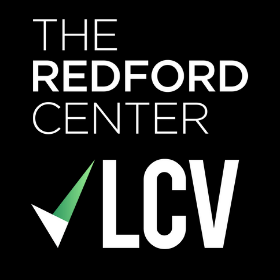Combatting the climate crisis is going to require rethinking how Americans move: Greenhouse gas emissions from transportation account for about 29 percent of total U.S. greenhouse gas emissions. “Global warming has made it very clear what the ramifications of not being more sustainable are,” says Michael McKillip, executive director of Midtown Indy, a non-profit dedicated to the economic growth and revitalization of the midtown of Indianapolis.
McKillip and other advocates celebrated when Indianapolis’ public transportation corporation, IndyGo, recently rolled out an all-electric, bus rapid transit public bus system, one of the first in the country. “It’s truly a pioneering effort for a city like Indianapolis to lead the way,” McKillip says.
Getting the project off the ground took bipartisan efforts, explains Colleen Fanning, a former Republican city councilor for the city, who was involved. Maggie Lewis, a current Democratic city councilor, said initially, other members of her own party warned her against supporting the project. “But I knew in my heart it was important, and if it got me voted out of office I was okay with that,” she says. “It’s not a political issue, it’s a quality of life issue.”
IndyGo’s community advocacy and bipartisan success story is featured in a new Redford Center short film, “Beyond the Line.” Directed by Indianapolis-based filmmaker Sam Mirpoorian, it’s the latest installment in a series showcasing community power in a collective call for civic engagement around clean transportation, justice, and jobs. It’s also a part of The Redford Center’s new Community Power: Clean Transportation Action Toolkit that connects audiences with facts, tools, organizers, and campaigns to get involved in local communities across the U.S.
Access to convenient, efficient public transportation is a critical component when addressing inequity and jobs. “We are the conduit to employment, healthcare, school, entertainment—without IndyGo, many citizens wouldn’t be able to get around,” says Inez Evans, president and CEO of IndyGo.
The city launched its all-electric Red Line in September of 2019. “Within a year and a half, jobs and overall community revitalization are happening right before our eyes,” says Ashley Gurvitz, CEO of Alliance for Northeast Unification.
As one of the new electric buses rolled up to a stop, frequent rider Liam says his household actually downsized to one vehicle after the Red Line opened. “My wife and I used to drive downtown,” he says, and “now I’m 100% a bus commuter.”
Honiste, another regular Red Line customer, says the buses’ hours and frequency make a big difference. “I got to be at work at 7:00 in the morning, so it’s good that it runs early, and it’s faster than regular buses,” she says.
To ensure the Red Line’s success, IndyGo is now making plans to expand its electric infrastructure: The city recently announced plans to implement inductive charging along the Red Line routes, so buses can charge as they drive, addressing early issues with the range of the buses. IndyGo is also now breaking ground on a new electric-powered 15.2 mile Purple Line, which aims to be up and running by 2024. To do so, IndyGo will buy an additional 30 electric buses. Finally, the city has put in a $25.8 million dollar order for hybrid buses to replace aging vehicles on its remaining traditional routes.
Evans is proud of IndyGo’s progress. “It’s significant that we’re not in Washington DC, or LA, or Atlanta,” she says. “Some of the largest transit systems in America are following IndyGo’s lead.”
The Community Power film series is an initiative of The Redford Center, in collaboration with LCV and Chispa, showcasing local activists, storytellers, and culture-makers as visionary leaders with the collective power to enact lasting environmental change. The Redford Center uses the power of storytelling to galvanize environmental justice. The League of Conservation Voters builds political power for people and the planet. Chispa is a grassroots community organizing program building the power of Latinx and communities of color in the fight for climate justice. Community Power films are generously supported by Far Star Action Fund.


